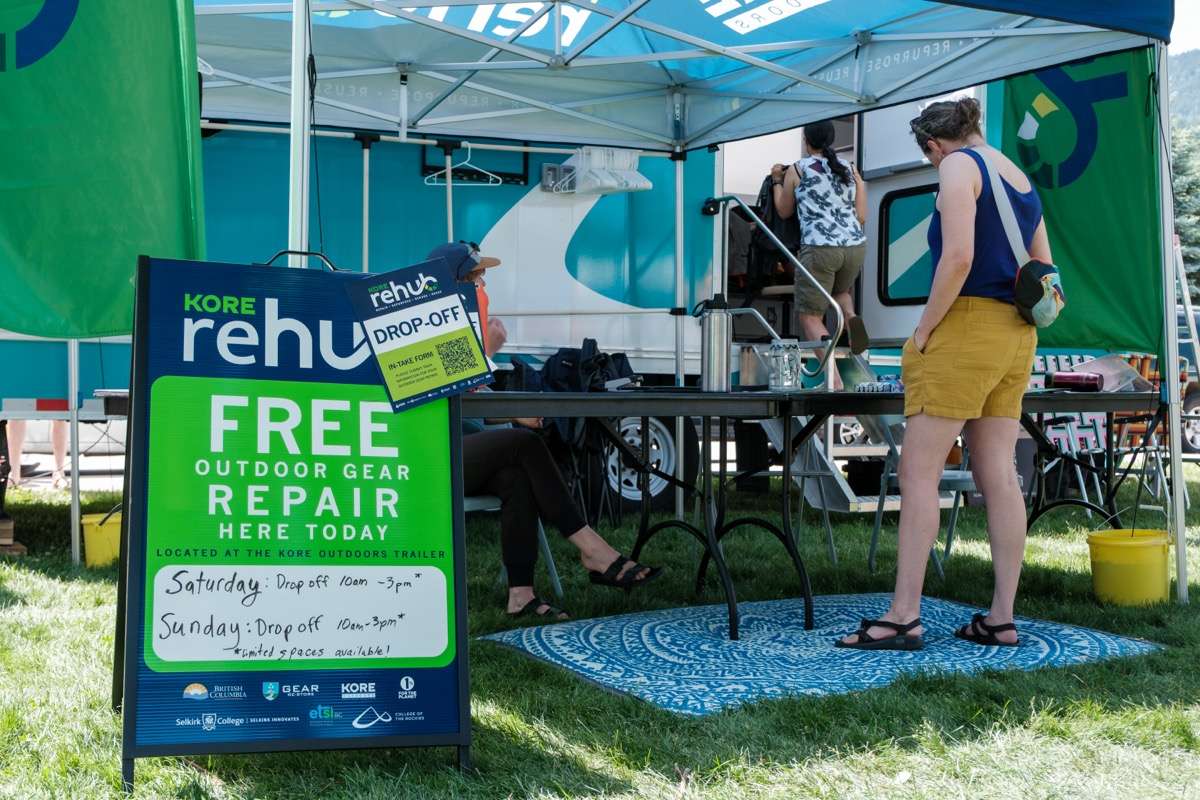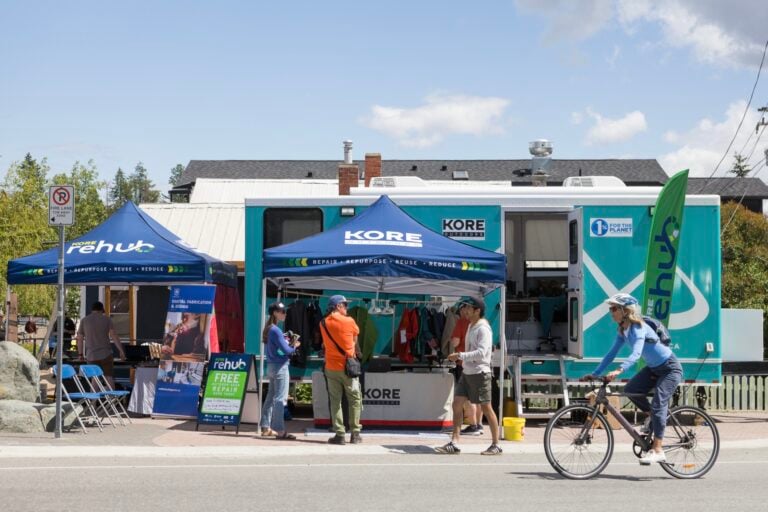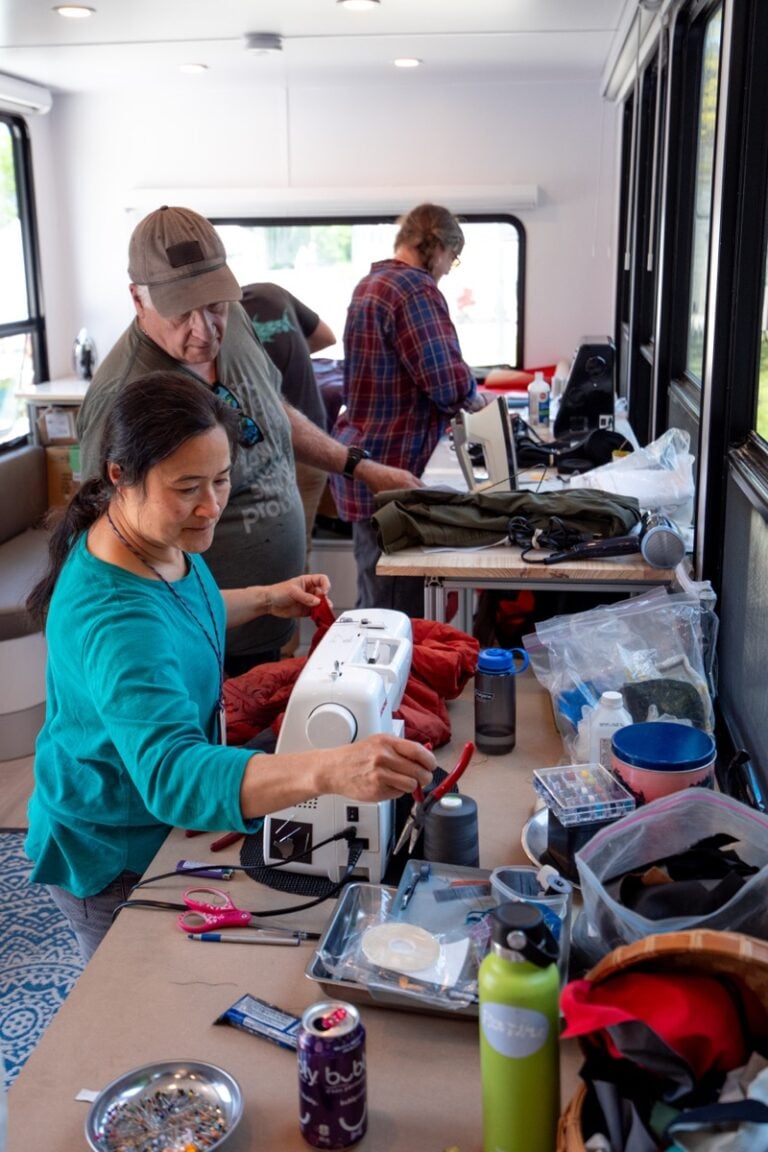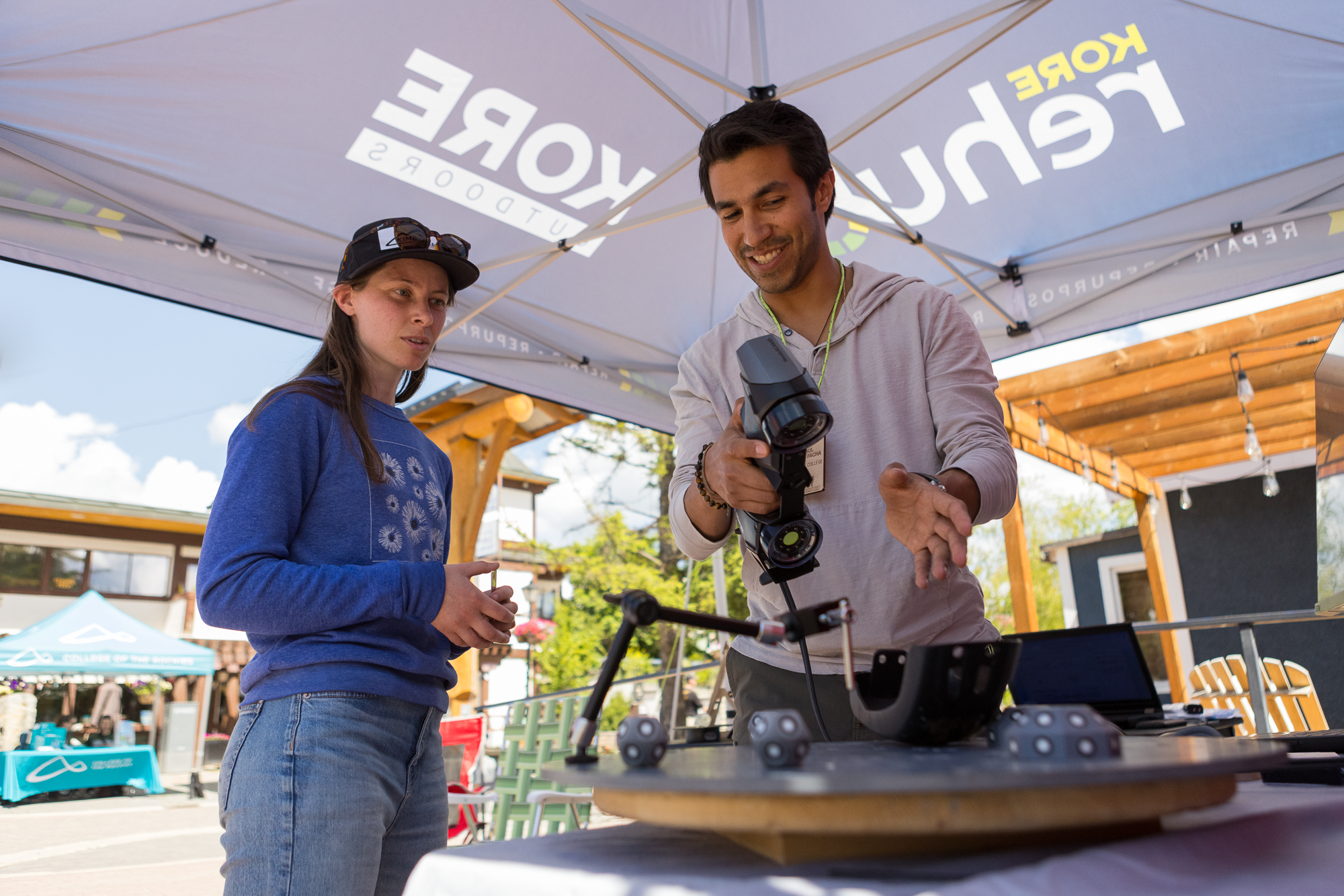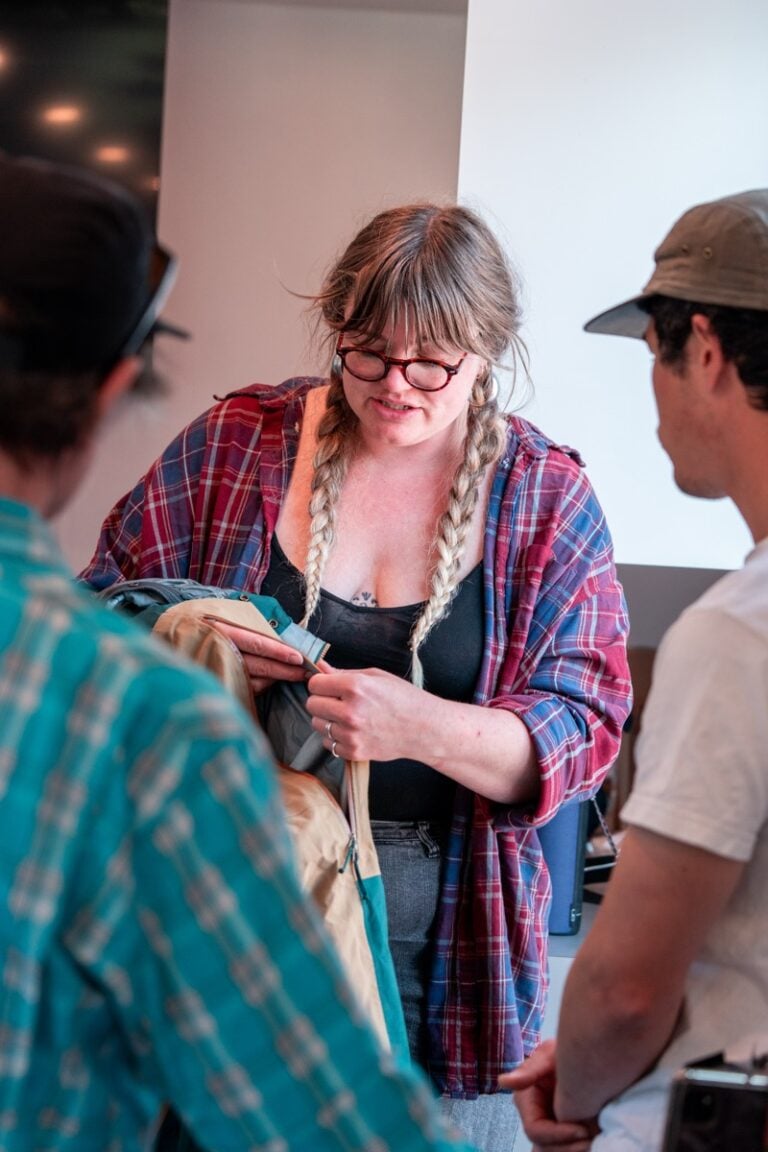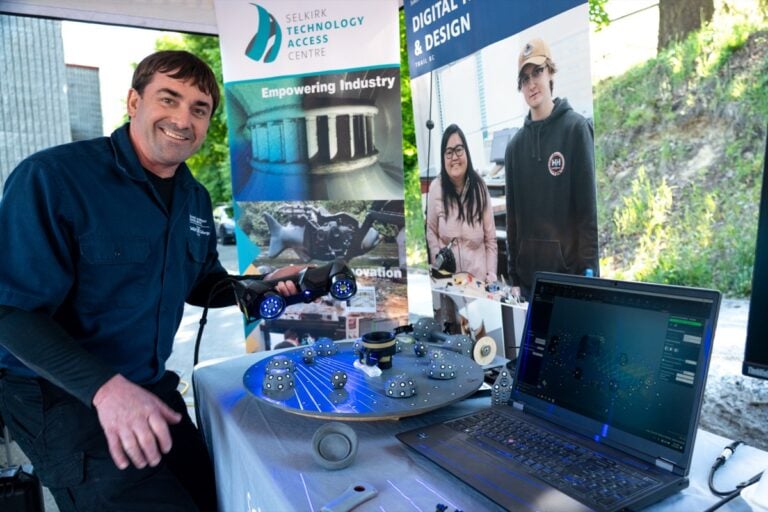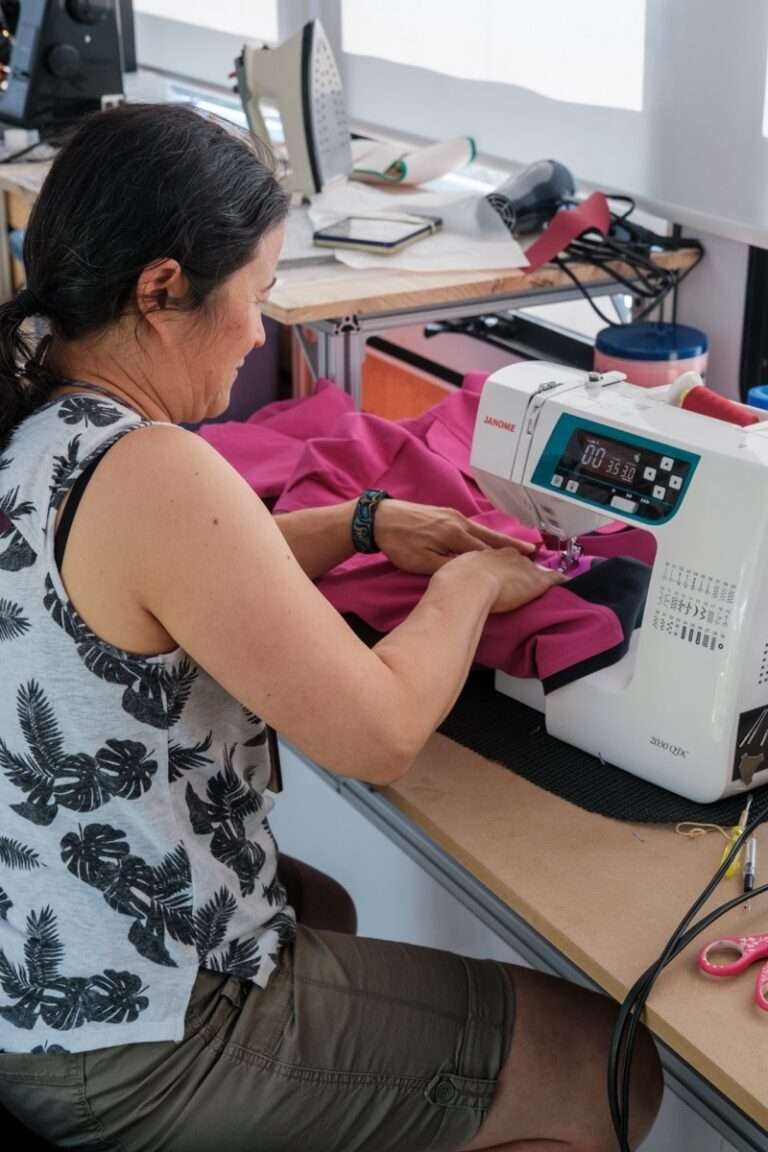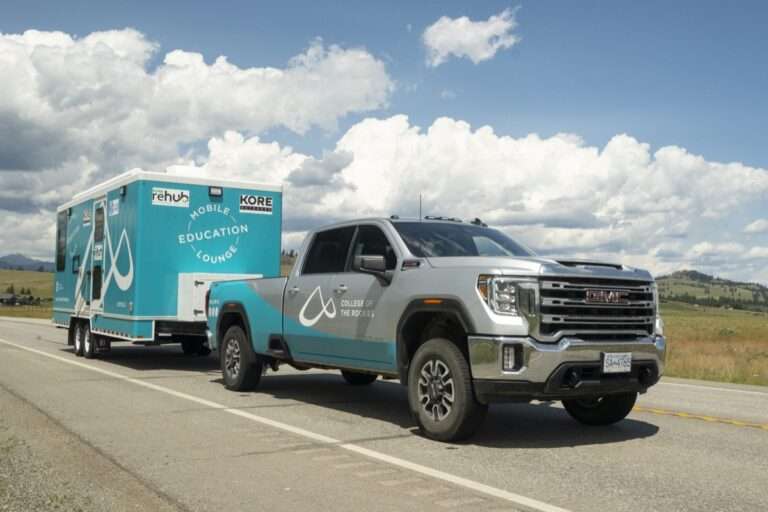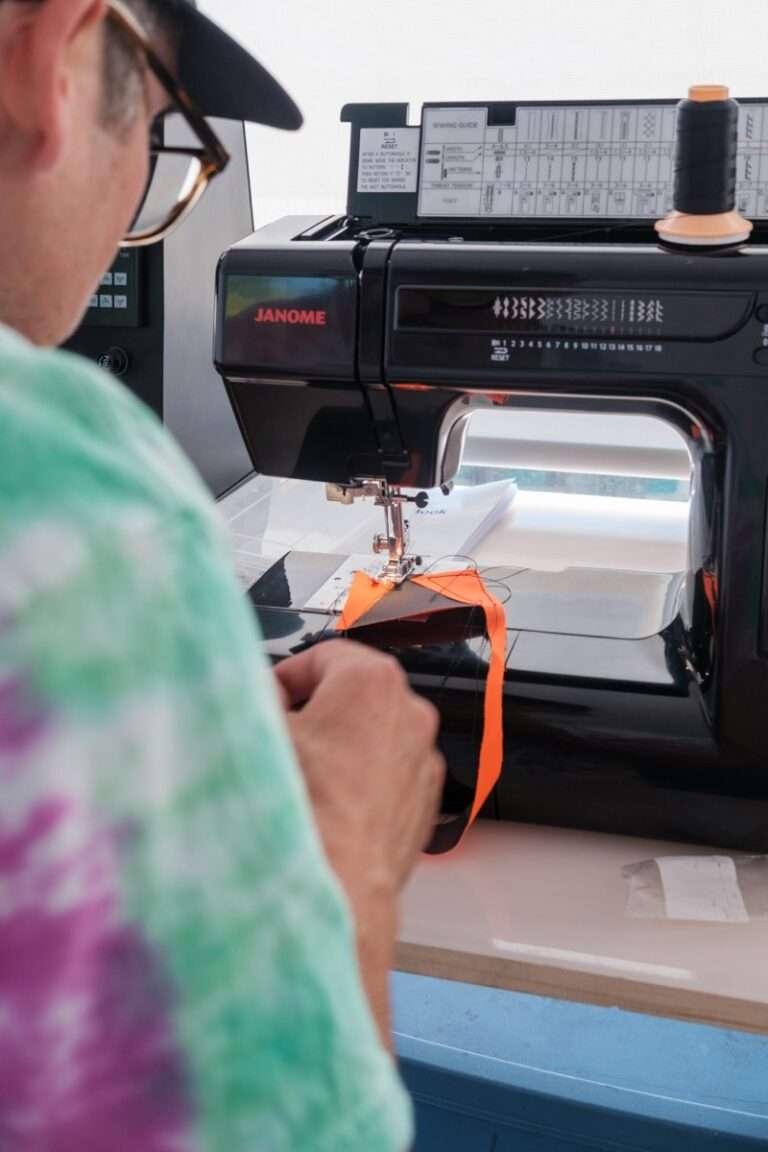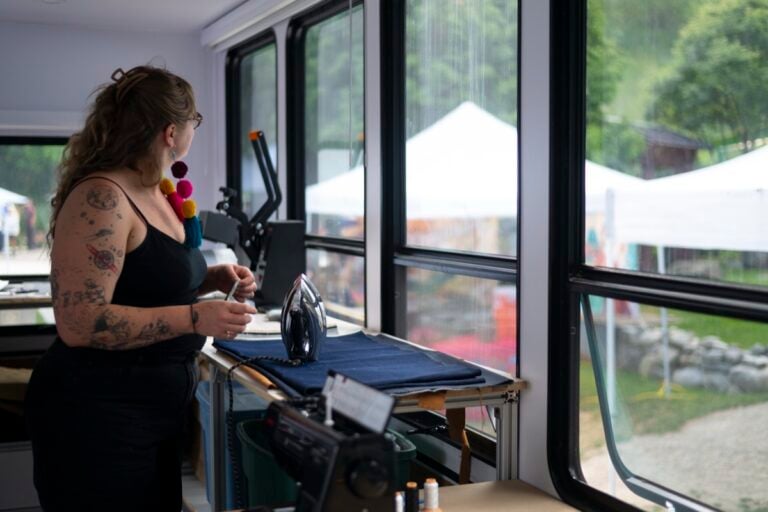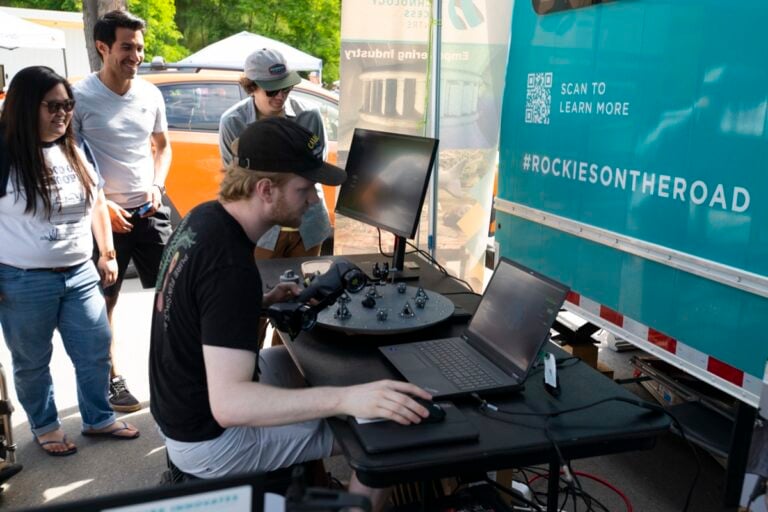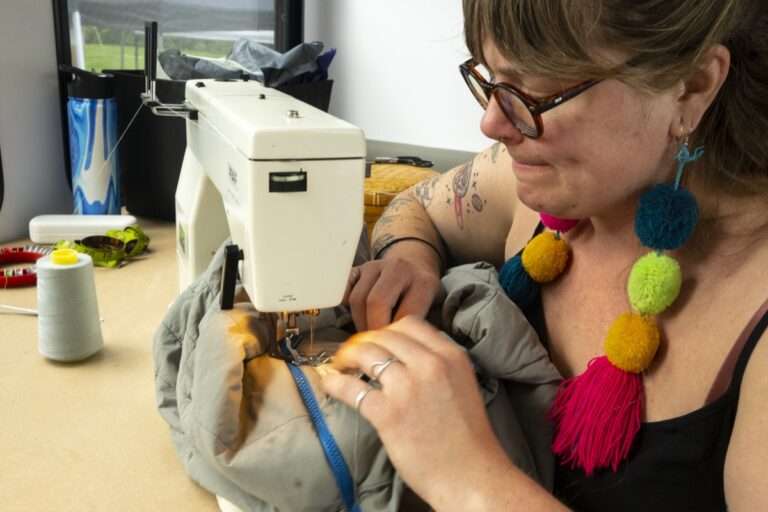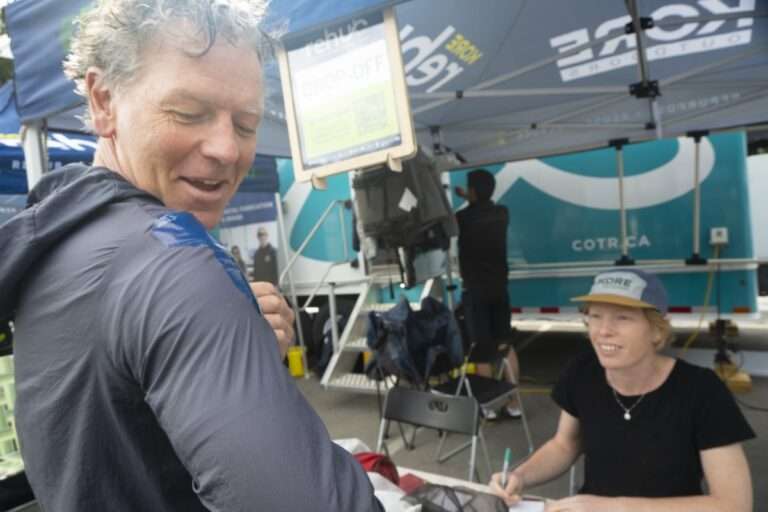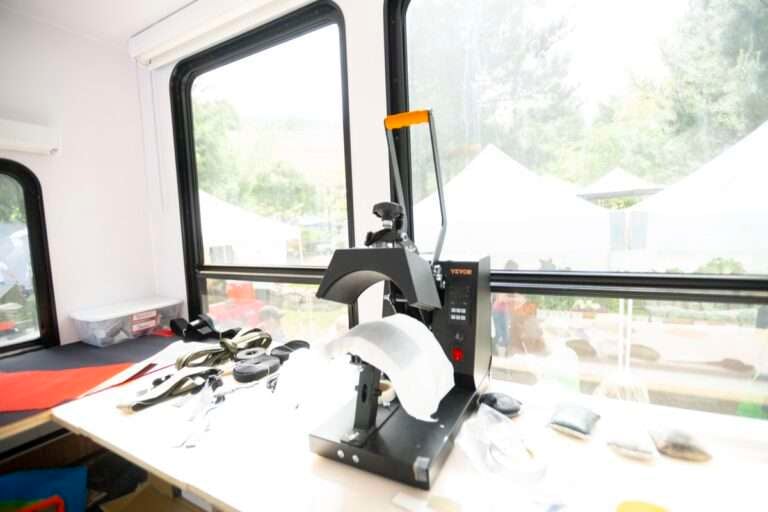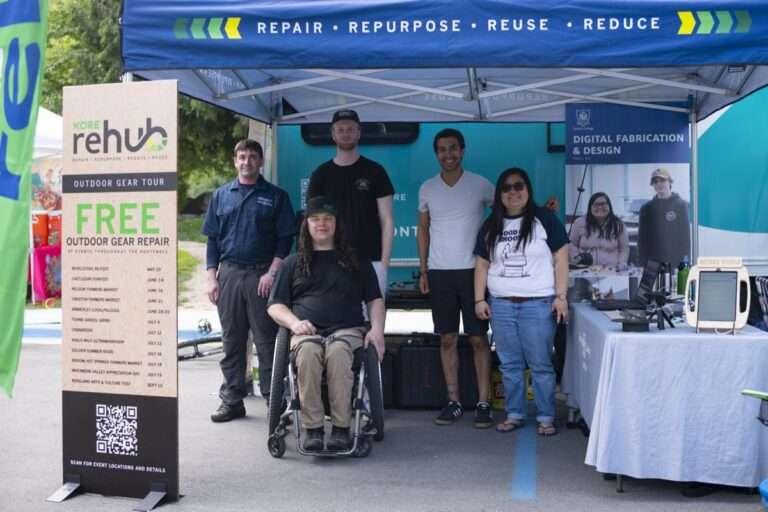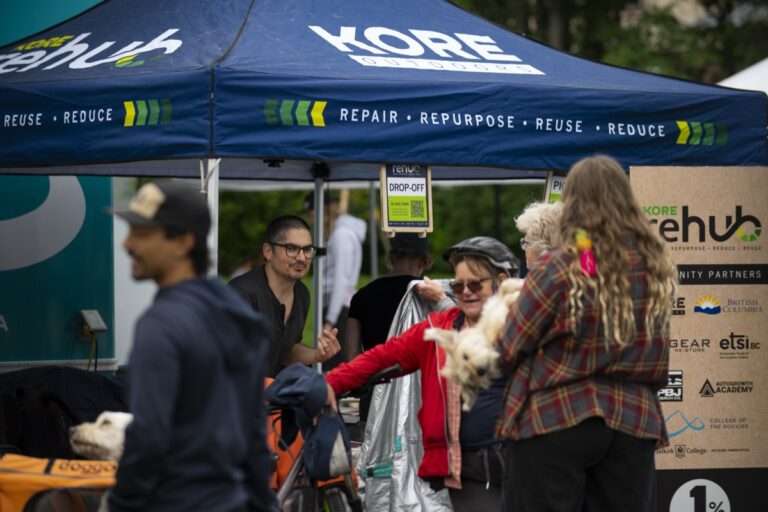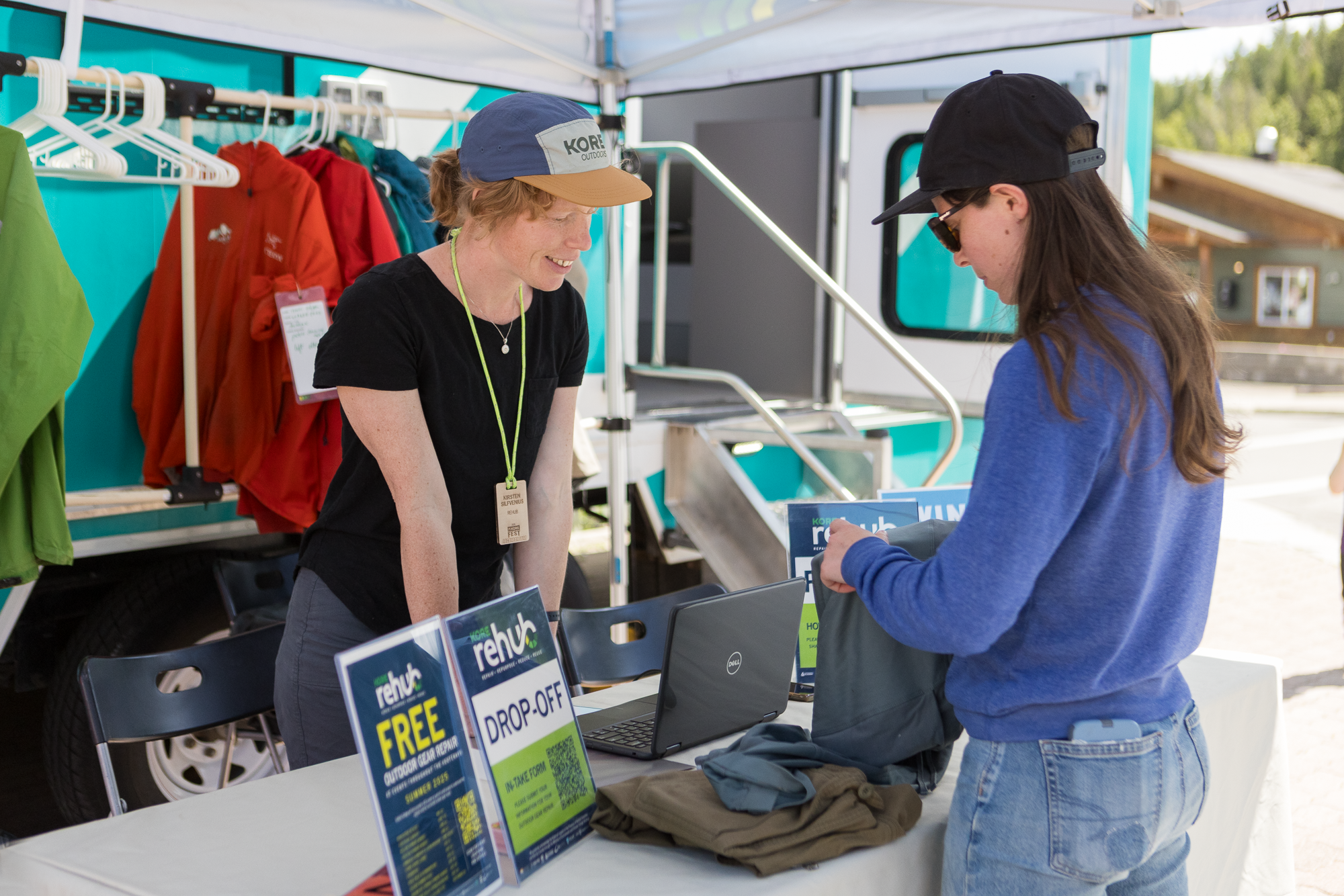It was my favourite tent: a Black Diamond beauty that joined me on countless adventures from the peaks of the Valhallas to the biking trails of Oregon to the crags in Utah. I’d had it for 20 years but the sand and grit finally took their toll on both door zippers and they blew out. The company didn’t make that model anymore so replacement parts were non-existent. I’d relegated it to a bin in the basement and didn’t have the heart to throw it out. Then, on a whim, I took it to the Re-Hub booth in Nelson with faint hope the technicians could fix it. They did! My favourite BD tent is now back in action and I’m as happy as I was when I first purchased it two decades ago.
My experience is only one of over 400 that have occurred so far this summer thanks to the inaugural KORE Outdoors Re-Hub Repair Tour. Launched in May 2025, the mobile outdoor gear repair initiative has now rolled through 11 of 12 planned communities, leaving behind a trail of patched puffies, functioning zippers, and inspired locals.
Armed with industrial sewing machines, a heat welder, and countless patches, a skilled crew of repair techs have offered no-cost fixes to outdoor adventurers from Revelstoke to Rossland. The impact has been immediate and heartening: over 400 outdoor items have been repaired this season alone, breathing new life into jackets, sleeping bags, backpacks, bike bags and more.
But this initiative isn’t just about gear—it’s about cultivating a culture of repair, and laying the groundwork for what could become Canada’s first permanent outdoor gear repair hub.
From Revelstoke to Radium: A Mobile Movement Takes Off
The Re-Hub Tour kicked off at Re-Fest in Revelstoke in May, drawing crowds eager to see if their much-loved but slightly tattered gear could be saved. The answer? Absolutely.
Since then, the Re-Hub mobile unit has visited 10 additional Kootenay communities including Golden, Fernie, Cranbrook, Kimberley, Nelson, Castlegar, Radium Hot Springs, Rossland, Invermere, and Creston. At each stop, the bright blue College of the Rockies trailer called “MEL” for “Mobile Education Lounge,” transformed into a bustling gear triage centre.
What’s Getting Fixed?
The variety of repairs has been as diverse as the people requesting them. Sleeping bags with stuck zippers? Fixed. Raincoats with torn hoods? Patched. Backpacks missing a strap? Re-strapped and ready for the trail. Most repairs are done on the spot using heavy-duty machines and technical fabric patches. Items with complex damage are taken off-site and completed by partner technicians such as Snowpatch Repairs in Kimberley and OG Repairs in Nelson.
In addition, the program also assessed fixes on hard goods such as ski gear, snowboards, or bindings. With support from Selkirk Innovates and Selkirk College’s Technology Access Centre, items were examined for repair viability and potential circular business opportunities in the region.
A Community-Driven Vision
Reactions from the public have been overwhelmingly positive. Attendees have praised the tour not just for the quality of repairs, but for sparking a new mindset around consumption and sustainability. Quotes have included:
- Melissa in Castlegar: “This has restored my faith in humanity.”
- Dave via email: “It’s a great endeavour. I’ve chucked all kinds of things in the past due to some sort of small yet critical-t0-function failure.”
- Eswen via email: “I was feeling lost without (my items) so I was really happy to hear you were offering this great service.”
- Sarah via email: “A permanent facility for gear repairs would be a huge addition to the Kootenays!”
That last quote touches on the long-term goal of the Re-Hub initiative: the aim of this year’s tour is to demonstrate the viability of permanent gear repair infrastructure in the Kootenays, establishing the region as a leader in outdoor gear circularity. “This is about more than fixing zippers and broken buckles,” said KORE Board Chair Matt Mosteller. “It’s about reimagining the lifecycle of gear and creating a repair economy to inspire regions around the world.”
Powered by Partnership
The Re-Hub Tour’s successful launch is the result of collaboration with two key institutions. The College of the Rockies provided both research support and the trailer used as the tour’s headquarters. Selkirk Innovates contributes expertise in gear diagnostics and business model development for a circular repair economy.
KORE Outdoors gratefully acknowledges the financial support of the Province of British Columbia and Alacrity Canada through the Ministry of Environment and Climate Change Strategy. We also thank these funders for helping make the Re-Hub program possible: ETSI-BC and 1% for the Planet with donations from Gear re-Store, PBJ Merch Co, and Autogrowth Inc.

What Comes Next
The Re-Hub Tour has only one more community stop this year in Rossland on September 13. The trailer will be set up from 12-4pm at the Rossland Arts & Culture Fest at 1100 Hwy 3B. It will also be set up at the 50th Anniversary of the Banff Mountain Film Festival in November. The momentum is far from over, however. KORE is actively collecting data, community feedback, and repair metrics to evaluate the potential for a permanent repair hub in the region.
KORE is also looking to expand on the Re-Hub Tour for 2026. Interested communities and organizations can fill out the form below to express interest.
In the meantime, KORE will continue to mend not just jackets and backpacks, but the throwaway culture that has long dominated the outdoor gear industry.
Learn more about the Re-Hub program at koreoutdoors.org/rehub.
